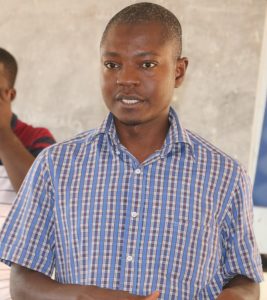
August 11, 2019//- Youth Empowerment for Life (YEfL), a Tamale-based youth focused NGO has called on the government to consider the introduction of entrepreneurship in its educational curriculum to promote opportunity recognition and ideation at the early stages to address the unemployment rate among the youth.
The Technical Advisor on Youth, Advocacy and Gender at YEfL, Alhassan Abdul-Ganiyu made the call in a statement issued ahead of the 2019 International Youth Day which falls on August 12, every year.
In this regard, the statement further called on the National Youth Authority to expedite action on revising the Youth Policy for guidance on youth development in the country.
The Youth Empowerment for Life ahead of the International Youth Day joined well-wishers globally to celebrate the youth on the theme “Transforming Education.”
“This presents us with the opportunity to reflect on our progress as a country in ensuring that our education becomes all inclusive, accessible and of quality with equal educational opportunities and facilities as enshrined in the constitution of Ghana and in the SDGs”, it added.
As the statement commended the government on its progress in providing access to basic and secondary education, especially with regard to Free SHS, “we are concerned that it is not doing well on the provision of quality education and the provisioning of adequate infrastructure which will affect the economic prospects of the youth and further widen the inequality gap”.
Among young people in Ghana, inequality is evident in educational outcomes and tends to favour young males over females, urban over rural. Whilst just under half of Basic Education Certification Examinations (BECE) students that qualify for SHS nationally, almost 2 in every 3 students qualify in the best performing region (Greater Accra), whilst only 1 in 4 students qualify for SHS in the poorest performing region (Upper East) (MoEM&E unit, 2011).
This sets the stage for regional disparities among young people in Ghana. Young people in disadvantaged areas (especially in rural northern Ghana) continue to miss out on the political and economic growth of the country due to widening gap in income between the wealthy and the poor.
Unemployment is unreasonably high as there appear to be a mismatch in skills and education.
On this occasion, we applaud the youth of northern Ghana and of the world for continuing to hold their governments accountable to ensure improved educational outcomes, the statement said.
African Eye Report


